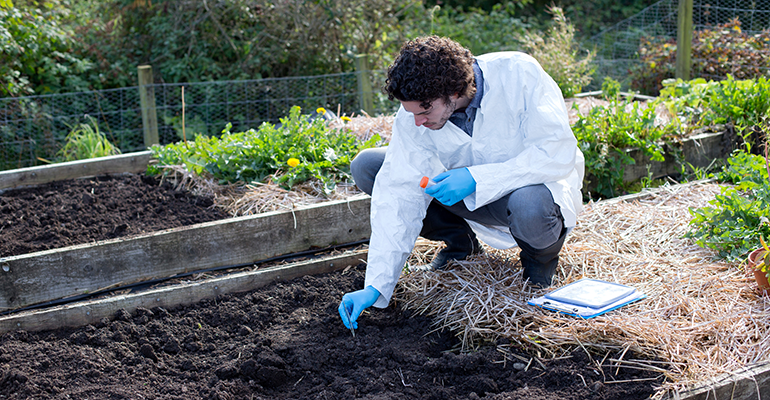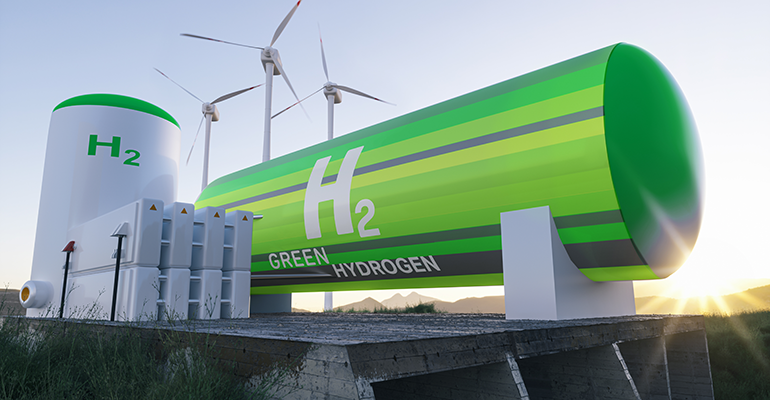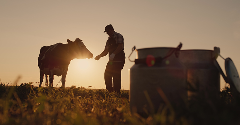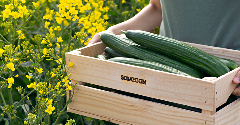News
How the EU is strengthening agrifood system resilience
7 Apr 2023
The EU faces significant challenges in ensuring food affordability and security in the face of multiple shocks. Developing domestically produced fertilisers and prioritising sustainability are key in building future resilience.
Nations across the globe have faced significant challenges in ensuring food affordability and security in recent years. The pandemic, war in Ukraine, and extreme weather conditions, are just a handful of factors that exposed the vulnerabilities of the global agrifood value chain, a European Commission (EC) source said in a seminar held in Brussels in late March.

“There has been a tendency to take food production for granted previously in the European Union (EU). But the past years have taught us: take food security for granted at your peril. Food security is a public good and citizens expect that their governments will ensure people are fed,” they said.
The increase in awareness of the vulnerabilities of agrifood supply chains has led to a greater appreciation of the importance of food security in Europe, the EC said. In response, the Commission has adopted a range of measures to build the resilience and strength of the agrifood system, notably the reformed Common Agricultural Policy 2023-2027 (CAP).
Food price inflation undermined the value of CAP payments in 2022
The EU experienced four major shocks over the past few years that have served as a reminder of the fragility of the food system: the COVID-19 pandemic, the war in Ukraine, drought, and food price inflation. The latter caused prices to rise by almost one fifth (19.5%) year-on-year in 2023, driving inflation at a macroeconomic level, and disproportionately impacting low-income families and farmers at a human level, according to an EC source.
Formally adopted on 2 December 2021, the reformed CAP seeks to “ensure a sustainable future for European farmers, provide more targeted support to smaller farms, and allow greater flexibility for EU countries to adapt measures to local conditions”.
Yet, originally agreed based on an expected average inflationary rate of 2% per annum over a period of seven years, the value of CAP payments received by farmers has significantly diminished. Nevertheless, farm incomes rose by a total of 13.5% in 2022, highlighting the adaptability of the market.
The Ukraine war emphasizes the need for domestically produced farm inputs
The war in Ukraine exposed the vulnerability of the European agrifood industry in two key areas: fertiliser and energy. Despite having a trade surplus in many commodities, fertilisers and energy are two critical vulnerabilities underlying European supply due to a reliance on imports, often from unreliable trade partners such as Russia, the EC source said. The war has exposed the need to develop alternatives to fossil fuels and chemical fertilisers in Europe.
Agricultural land ultimately requires fertiliser, so the question as to what to replace chemical fertiliser with is a critical one. Plants need certain nutrients that can only be obtained from mineral fertilisers, for which supply has been fragmented recently, according to the EC source.
“[Where agrifood is concerned], we need to avoid losses, and high prices are good at discouraging waste. High prices in recent years have led farmers to be more diligent in their use, and technology has the opportunity to ensure that expensive resources are used efficiently,” the source said.
As nitrogen fertilisers are dependent on gas imports, there is a need to develop mineral fertilisers domestically, for which technology offers the best opportunities, they said.
 © AdobeStock/AA+W
© AdobeStock/AA+W
“The most promising technology is green hydrogen, [for which] significant investment is taking place at both the EU and state level. There is a need to provide incentives to the industry to adopt these technologies and to work with consumers to [encourage them to] be more conscious and mindful.”
Climate change poses the most severe risk to EU food security
The greatest risk across all sectors of the food system is climate change, the spokesperson said. Severe drought, which affected much of southern Europe last year, caused maize production to fall by 24% year-on-year in 2022, leading the EU to drastically increase imports of the commodity. This however was counteracted by a successful wheat harvest, of which the EU was able to export 32 million tonnes, EC data shows.
The dilemma of productivity versus sustainability will be a significant challenge in future. Europe needs to prioritise sustainability and become more innovative in terms of food production, according to the Commission. Developing mineral fertilisers and educating consumers on how to put sustainability at the centre of food purchasing and consumption habits will be key in achieving this, the spokesperson said.
The EU remains equipped to withstand significant threats
Despite these threats, the EU has maintained high-quality, efficient, and effective food security systems, nodding to its capacity to deal with unexpected shocks, the EC said.
This is partly due to the CAP, it said, which aligns with wider EU objectives such as the Green Deal and Farm-to-Fork strategy, as well as the effect of internal markets, international trading frameworks, and aligned regulatory frameworks across member states.
Moving forward, climate change, including plant protection measures as exemplified in the green deal and farm to fork initiatives, must be a top priority, the Commissioner said.
Related news

Soy story: WWF scores UK supermarkets on sustainability efforts
12 Nov 2025
WWF has published its latest “Soy Scorecard”, ranking UK supermarkets’ efforts to combat deforestation and land conversion in their soy supply chains.
Read more
Standing Ovation and Bel scale up casein production from dairy co-products
11 Nov 2025
Foodtech company Standing Ovation has partnered with cheese specialist Bel Group to manufacture dairy serums for industrial-scale casein production via precision fermentation.
Read more
New UPF standard hoped to offer consumers ‘coherence and clarity’
10 Nov 2025
Ingredients companies are being urged to enter “a new era of partnership and innovation” following the launch of the industry’s first non-UPF verification scheme.
Read more
Whistleblowers accuse UK meat industry of promoting cheap, unsustainable supply
7 Nov 2025
An anonymous group of industry insiders has accused the UK’s biggest food companies of systematically driving down meat quality and welfare standards.
Read more
Bord Bia presents Irish dairy ingredient suppliers at Fi Europe
6 Nov 2025
Dairygold Co-operative Society, The Carbery Group, and Ornua Co-operative: Meet with sustainable producers of Irish dairy ingredients at Food ingredients Europe 2025, Hall 7.2 Stand M18.
Read more
AI attraction means foodtech startups must ‘prove’ rather than ‘promise’
4 Nov 2025
Reports suggest that artificial intelligence (AI) is sucking investment from foodtech and agritech, but investors say the picture is complicated.
Read more
Penguin and Club bars no longer classed as chocolate
30 Oct 2025
Penguin and Club bars can no longer be classified as chocolate after the pladis-owned McVitie’s brands turned to cheaper alternatives amid the ongoing cocoa crisis.
Read more
Could plant-based protection replace plastic packaging?
29 Oct 2025
Swedish foodtech company Saveggy has launched an additive-free plant-based protection for cucumbers, offering a waste-free packaging solution for fruit and vegetables.
Read more
Does promoting protein content push up plant-based sales?
27 Oct 2025
Promoting the protein content of meat-free products is a more effective sales strategy than adding carbon labels, a study of UK bakery chain Greggs suggests.
Read more
Amazon Grocery launch aims to balance quality with affordability
22 Oct 2025
Global e-commerce giant Amazon has introduced a new private-label food brand, combining existing Amazon Fresh and Happy Belly products with new everyday items.
Read more